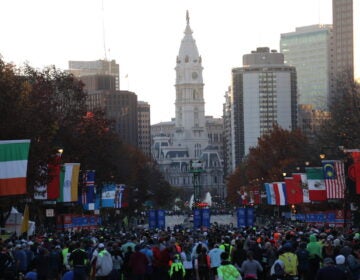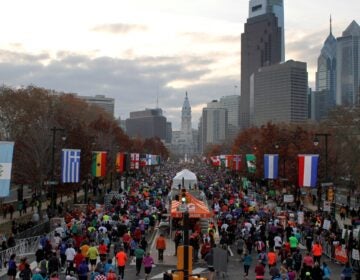‘Psychs on Bikes’ try to keep Philly marathon runners from hitting the dreaded ‘wall’
For the first time, the Philadelphia Marathon offered up a team of sports psychologists to help less experienced runners push through to the finish line.
Listen 2:22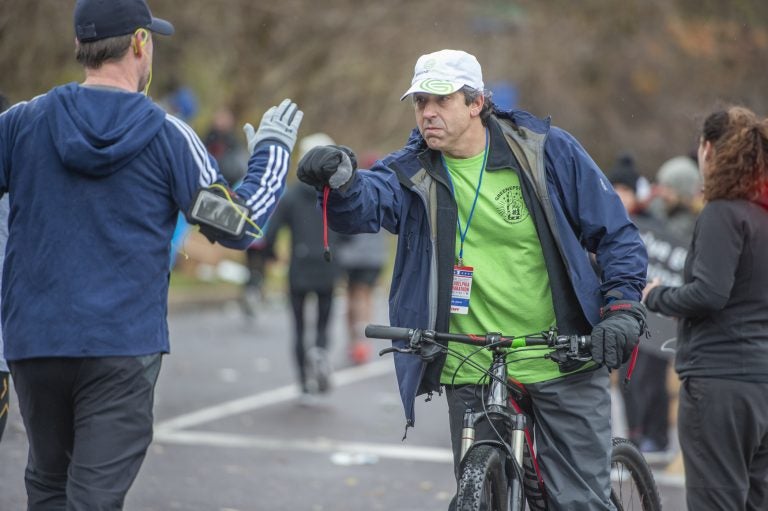
At the 18 mile mark, Mitchell Greene fist bumps a runner during the 2019 Phialdelphia Marathon. (Jonathan Wilson for WHYY)
Sarah Beck, one of the roughly 30,000 people to run the Philadelphia Marathon Sunday, found herself reaching the 18th mile marker next to a man on a bike, which is technically prohibited from the 26.2-mile racecourse.
The man next to Beck was Mitchell Greene, the Philadelphia Marathon’s official sports psychologist.
When he caught up with her, Greene had already been riding up and down the same four-mile stretch since 8:30 a.m., cheering runners who were keeping pace and those who showed signs of slowing down — and even stopping.
Greene and a handful of other psychologists were part of the Philadelphia Marathon’s inaugural “Psych on a Bike” program.
Bookended by dozens of cheering spectators bearing beer, pastries, and high fives, the area between miles 18 and 22 of the Philadelphia Marathon also contain some of the loneliest stretches of the course at a critical point in the race.
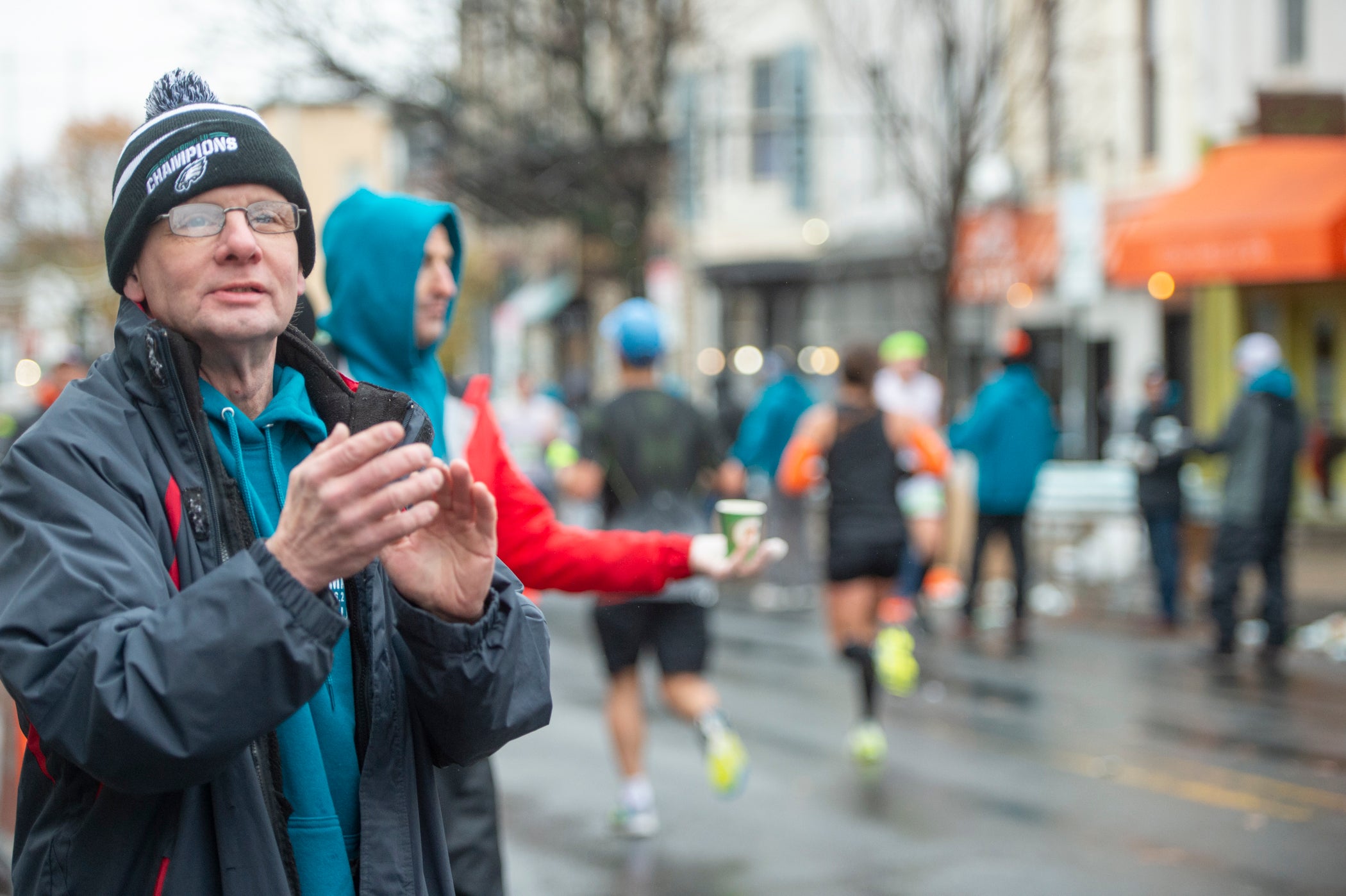
It’s in those sections — where the only sound runners can hear are the pound of sneakers hitting pavement — that they’re most likely to hit “the wall,” a feeling that you can’t possibly go another mile.
Technically, hitting the wall is a sign a runner’s carbohydrates have slowly depleted.
Though “the wall” is a manageable physical response to a long run that can be reversed by consuming adequate calories during the race, it is also a psychological issue. That’s where Greene and his team of four psychologists and a volunteer come in.
“I get to be out on the course during the race in those very moments the mind wants to quit,” said Greene, who brought the “Psyche on a Bike” program to the Philadelphia Marathon for the first time this year.
“I know the mind doesn’t need to quit if you have somebody who can pull you out of it.”
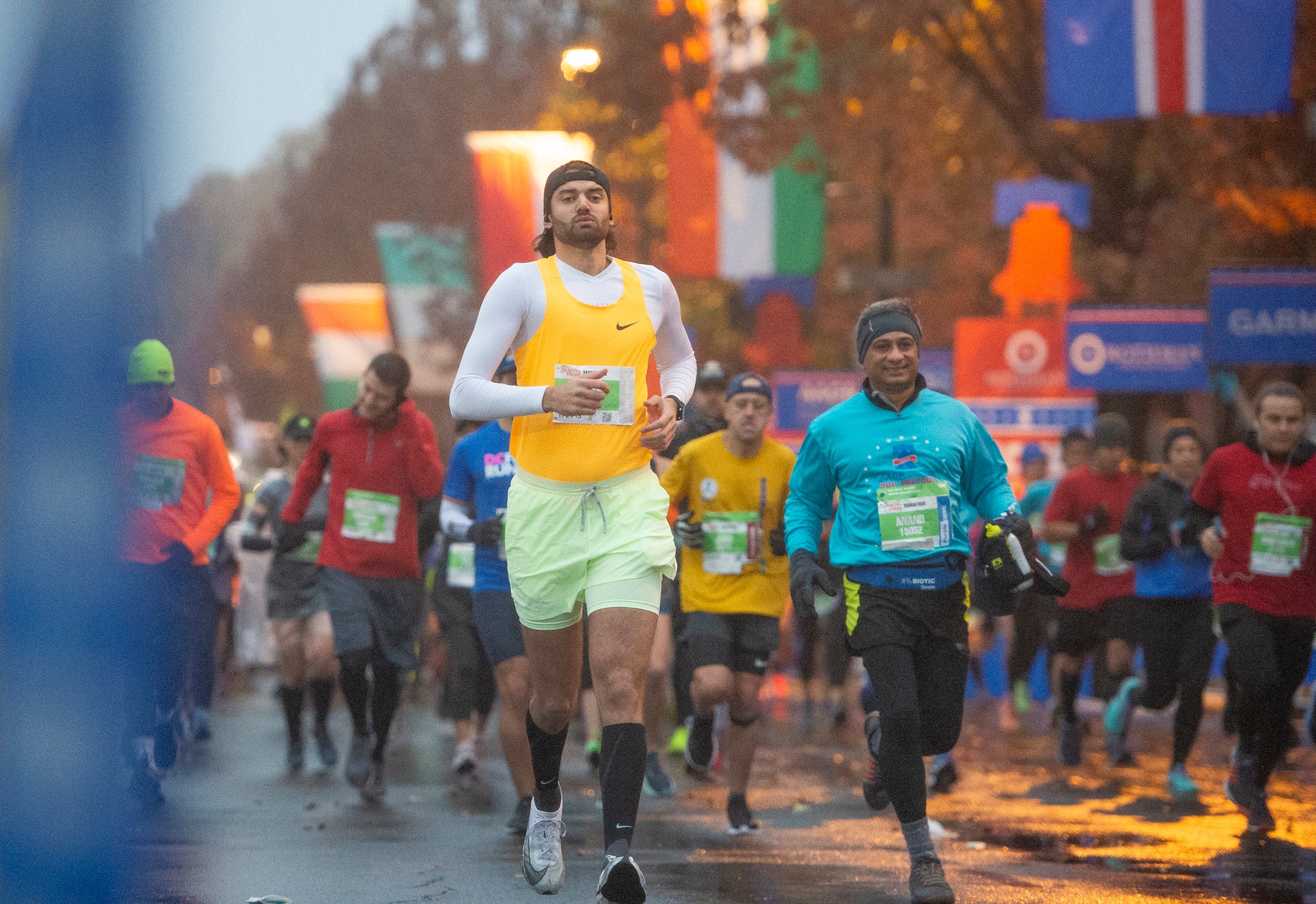
Most marathon training plans only go up to 20-mile runs, which means less experienced runners can easily get in their own heads when they reach the final leg of the race, facing a distance they’ve never run before.
“For many, it’s a bit of a no man’s land feeling after they’ve run the 18 (miles),” said Greene. “Let’s say that’s the furthest they’ve gone in their training, they can start to get nervous thinking, ‘I’ve never gone further than this.’”
Greene and his staff tried to direct their encouragement and tips to first-time and less experienced marathoners. They looked for signs of slowing down, distress, or tears streaming down their faces.
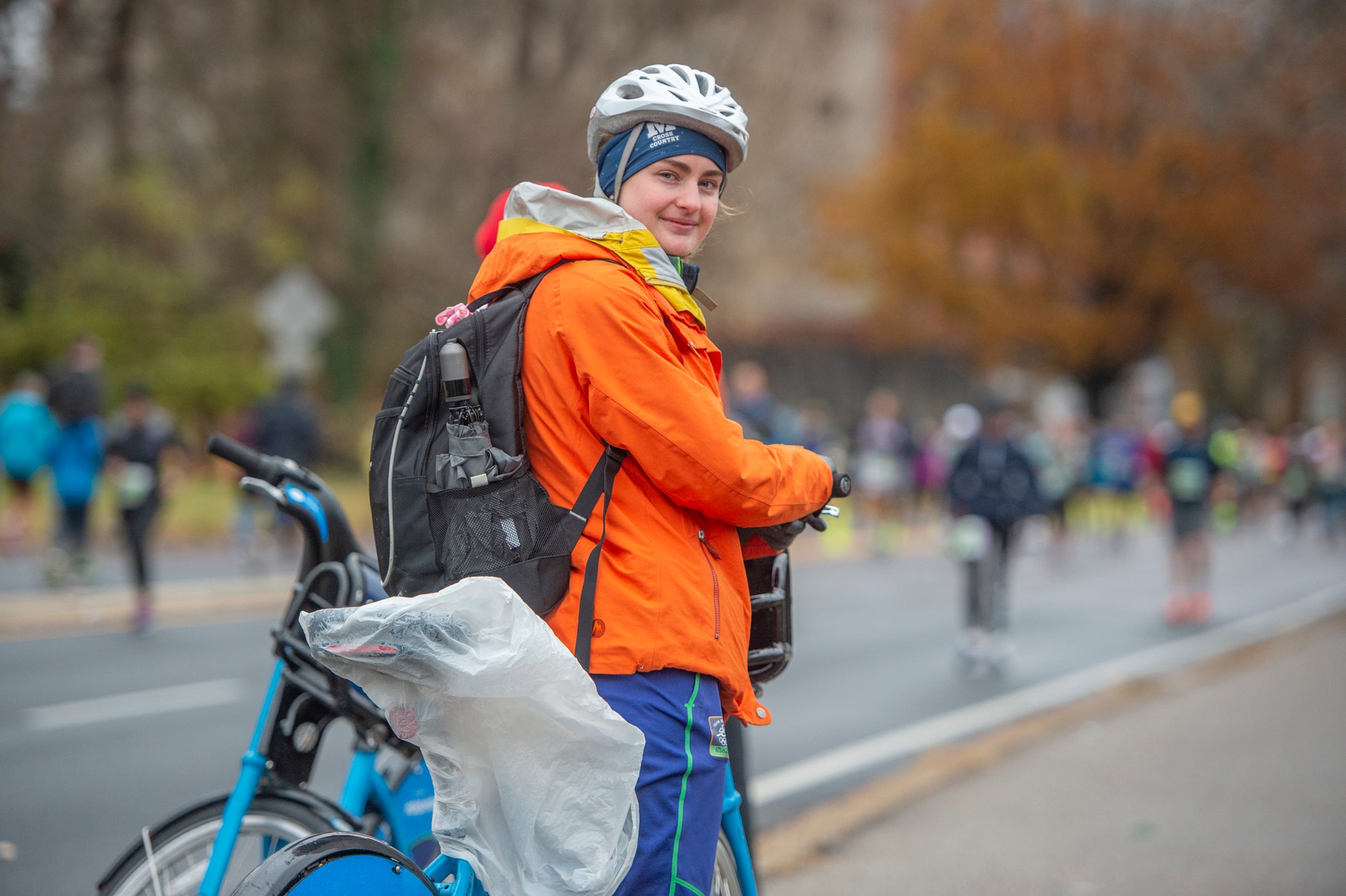
“Stay loose, you got it, believe in yourselves,” Rory Kelly told runners as she rode her bike up and down mile 19. “If you need a plan, try 100 steps walking and then 100 steps running, 100 walking and then 100 running — you got this!”
Kelly, a recent college graduate and former cross-country runner, who is interested in sports psychology, encouraged runners to break the remainder of the race into sections and remember why they signed up to run in the first place.
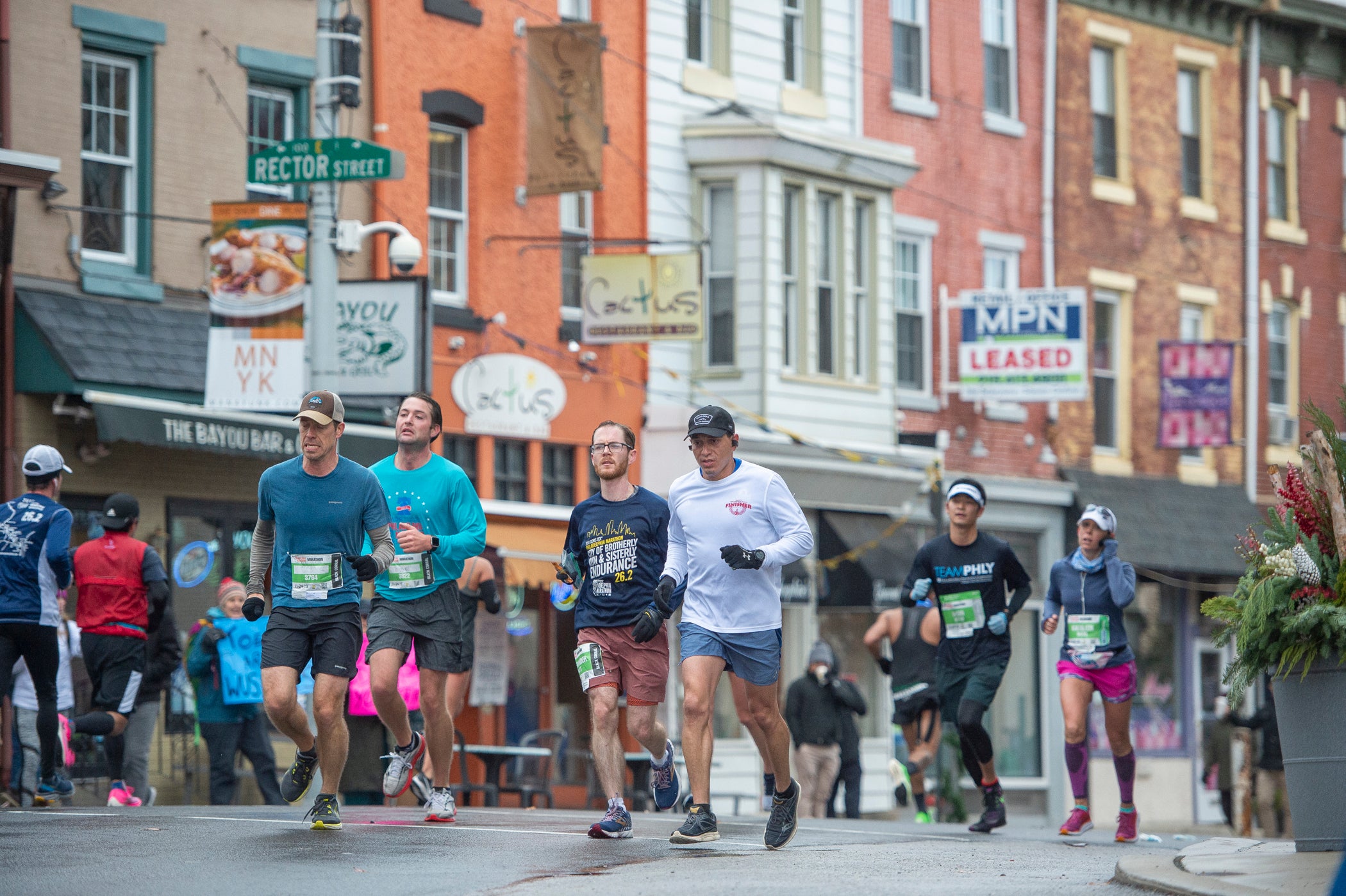
She and Greene also personalized cheers, reading names off runners’ bibs, and offering high fives to those who were feeling up to it.
Greene brought “Psych on a Bike” to Philadelphia after seeing it done elsewhere and trying it during triathlons. He said the idea of coaching in real-time and keeping psychologists on hand for race weekend is relatively new, and has typically been reserved for marquee races like the New York City Marathon.
Typically, Greene has offered advice and support before the race when runners pick up their bibs.
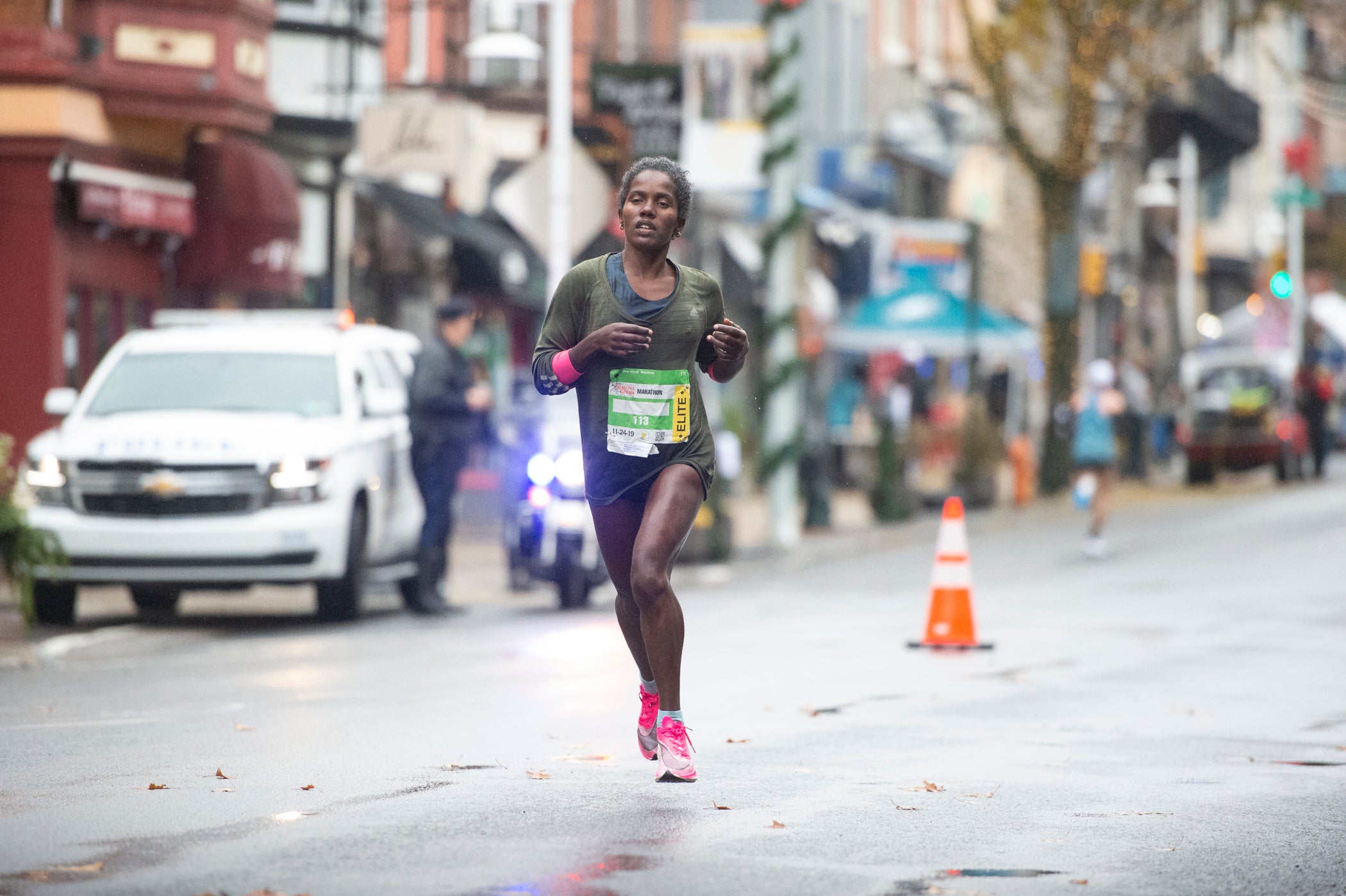
Coaching from a bike during the race allows Greene to remind people how to fight the wall just as their mind is about to get the best of them.
“Let’s go now!” shouted Greene as he rode his bike next to Sarah Beck. “It’s all about getting there, just get there! It doesn’t matter how you get there!”
Beck, flanked by her sister and friend, said the group was actually feeling good, considering they’d been running for four hours.
Greene reminded them to hydrate, and Beck’s sister and friend tossed him a “We love you!” as they continued toward the final leg of the course and the finish line.
“Everybody needs somebody like him,” Beck said.
WHYY is your source for fact-based, in-depth journalism and information. As a nonprofit organization, we rely on financial support from readers like you. Please give today.


